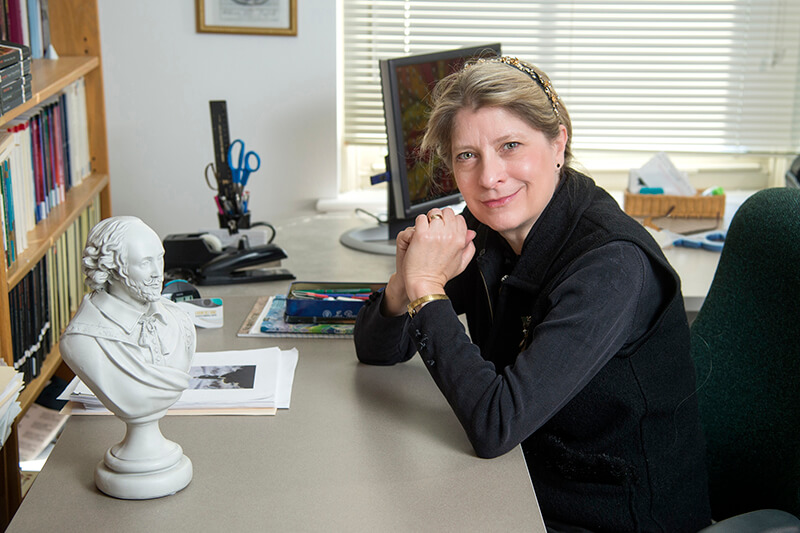October 31, 2017
Purdue Profiles: Melinda Zook
 Melinda Zook, professor of history and director of the new Cornerstone Integrated Liberal Arts Program. (Purdue University photo/Mark Simons)
Download image
Melinda Zook, professor of history and director of the new Cornerstone Integrated Liberal Arts Program. (Purdue University photo/Mark Simons)
Download image
Melinda Zook is a professor of history and the director of the new Cornerstone Integrated Liberal Arts Program.
Cornerstone is a new program designed for undergraduates that integrates humanities and social science perspectives for STEM and management majors alongside their areas of specialization. By directing Cornerstone, Zook hopes to enhance students' worldview, their creative thinking, their communication skills and their understanding of society.
What are some of your typical tasks and responsibilities?
As director of the new Cornerstone Integrated Liberal Arts Program, I develop the curriculum, identify faculty fellows and connect with people across campus to talk about this new program. I also teach the Medieval History survey, a variety of English history courses, and the new Transformative Texts course. I am researching and writing one book and editing another. I also mentor both graduate and undergraduate students.
What is the new Cornerstone Integrated Liberal Arts Program?
Cornerstone is a 15-hour certificate program designed for all Purdue undergraduates that challenges students intellectually and nurtures them to become lifelong learners. Cornerstone enhances the educational experience by integrating a social science and humanities perspective on the STEM and management disciplines. Cornerstone allows students to choose from a range of Liberal Arts courses that helps them to understand their major in a broader cultural and historical context. Additionally, Cornerstone redefines the first-year experience for entering freshmen through a new two-semester sequence, Transformative Texts, Critical Thinking and Communication I and II (SCLA 101 and 102). Transformative Texts is content-driven. Undergraduates read and discuss a series of foundational works while developing their written and oral communication skills. It also provides students the opportunity to engage with classic texts that speak to the human condition over time, stressing both the historical contexts and the enduring questions that all peoples throughout time have confronted.
What are the benefits of the Cornerstone Integrated Liberal Arts Program?
Cornerstone helps students to see the interaction and impact of their chosen field (including technology, engineering, business, science and medicine) on society and culture. Everything engineers build or computer scientists design impacts the world around them, just as new breakthroughs in medicine and science raise new societal and ethical dilemmas. A liberal education allows the future engineer or scientist to see their specialization through a broad lens, one that will both inspire them and help them understand the consequences of their work.
How did you get involved with Cornerstone?
Dean Reingold gave me the opportunity to build a program that connects Liberal Arts with other units across this campus. As a believer in the power of classic texts, I wanted to give all Purdue students the opportunity read and discuss great authors, to be inspired and edified, consoled and guided by them. Cornerstone connects faculty with students by way of the enduring questions that emanate from the human experience.
How do your interests and research tie in with Cornerstone?
I guess I have come full circle. I started by loving literature and now I am seeking to impart that love. More than that, I love teaching, and for some time I have wanted to reach more students, beyond history or liberal arts majors. Cornerstone gives me the opportunity to reach students in engineering or pharmacy or accounting and to make a difference in their lives.
Writer: Kelsey Schnieders, kschnied@purdue.edu

